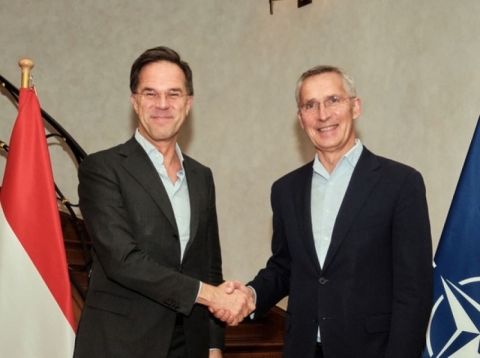Politics
Atlantic Council elects Dutch Prime Minister as Stoltenberg's successor
New Secretary General of NATO
USPA NEWS -
The North Atlantic Council decided this Wednesday to appoint Dutch Prime Minister Mark Rutte as the next Secretary General of NATO, succeeding Jens Stoltenberg. Rutte will take over his duties as Secretary General from October 1, 2024, when Stoltenberg's term expires after ten years at the helm of the Alliance.
Jens Stoltenberg became Secretary General of NATO in October 2014. As former Prime Minister of Norway and UN Special Envoy, Stoltenberg has a distinguished record of national and international achievements spanning security, defense, climate, energy and economics. He is a strong supporter of greater global and transatlantic cooperation. NATO allies have extended Stoltenberg's mandate by unanimous consent four times, and his term will end on October 1.
Under his leadership, NATO has responded to a more challenging security environment by implementing the largest buildup of its collective defense since the Cold War: with more forces, increased defense spending, and an unprecedented four rounds of NATO enlargement, with accession from Montenegro, North Macedonia, Finland and Sweden. NATO has also stepped up its efforts in the fight against terrorism. Stoltenberg has long advocated for increased defense spending and better burden-sharing within the Alliance, as well as a greater focus on innovation and partnerships, including with the European Union. As NATO Secretary General, he has played a key role in building international support for Ukraine in its resistance to Russian aggression, particularly since the full invasion of Moscow in 2022.
As Prime Minister of Norway, Stoltenberg transformed the Norwegian military with increased defense spending and new high-end capabilities. He also signed an agreement with Russia to establish maritime borders in the Barents and the Polar Sea, ending a 30-year dispute. Stoltenberg was instrumental in shaping Norway's oil and gas industry, and in establishing the Norwegian Sovereign Fund.
Stoltenberg was Prime Minister during the deadly terrorist attacks that killed 77 people in Oslo and Utøya on July 22, 2011. In a historic speech at Oslo Cathedral two days later, he urged Norwegian society to respond with "more democracy, more openness and more humanity, but never naivety".
For many years, Jens Stoltenberg has been dedicated to mitigating climate change. He chaired a high-level U.N. commission on climate finance and served as U.N. special envoy on climate change, helping to prepare the Paris Agreement.
Stoltenberg has a postgraduate degree in Economics from the University of Oslo. After graduating in 1987, he took up a research position at the Norwegian National Institute of Statistics, before embarking on his political career in Norway.
Liability for this article lies with the author, who also holds the copyright. Editorial content from USPA may be quoted on other websites as long as the quote comprises no more than 5% of the entire text, is marked as such and the source is named (via hyperlink).






